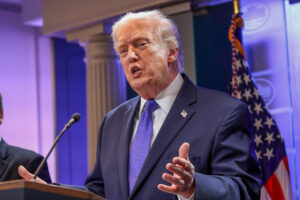A US journalist working for The Wall Street Journal has been detained in Russia on suspicion of espionage, the FSB security service says.
Evan Gershkovich, an experienced Russia reporter, was working in Yekaterinburg at the time of his detention.
The Wall Street Journal said it was “deeply concerned” for his safety and vehemently denied the allegations against him.
The Kremlin claimed the reporter had been “caught red-handed”.
The FSB said it had “halted illegal activities” and that the reporter had been “acting on US instructions” and “collecting state secrets”.
Mr Gershkovich’s last piece this week reported on Russia’s declining economy and how the Kremlin was having to deal with “ballooning military expenditures” while maintaining social spending.
The FSB confirmed in its statement that he had foreign ministry accreditation while working in Yekaterinburg 1,800km (1,100 miles) east of Moscow.
But it added he had been detained “acting on US instructions” and that he had “collected information constituting a state secret about the activities of a Russian defence enterprise”. A criminal espionage case had been launched by the FSB’s investigation department, it added.
In a statement, the Wall Street Journal said it stood in solidarity with the reporter and his family: “The Wall Street Journal vehemently denies the allegations from the FSB and seeks the immediate release of our trusted and dedicated reporter, Evan Gershkovich.”
The Kremlin also commented on the detention of the American journalist. “This is the responsibility of the FSB, they have already issued a statement,” a spokesman said. “The only thing I can add is, as far as we know, he was caught red-handed.”
Even before the full-scale invasion of Ukraine in February 2022, reporting from Russia had become increasingly difficult.
Independent journalists were labelled “foreign agents” and BBC Russia correspondent Sarah Rainsford was expelled from the country.
When the war began, Russia introduced a criminal offence for reporting “fake news” or “discrediting the army”, under which dozens of Russians have been convicted for criticising the invasion on social media.
Almost all independent media were silenced, shut down or blocked, including major outlets TV Rain, Echo of Moscow radio and newspaper Novaya Gazeta. Many Western media chose to leave Russia.
Russian political expert Tatyana Stanovaya said Mr Gershkovich’s detention had come as a shock. In the FSB’s view of espionage, “collecting information” could simply mean gathering comments from experts, she said, while acting on US instructions could simply refer to his editors at the Wall Street Journal.
However, Russian foreign ministry spokeswoman Maria Zakharova said what a Wall Street Journal employee was doing in Yekaterinburg had “nothing to do with journalism”. It was not the first time the status of “foreign correspondent” had been used to “cover up activities that are not journalism”, she said.



























